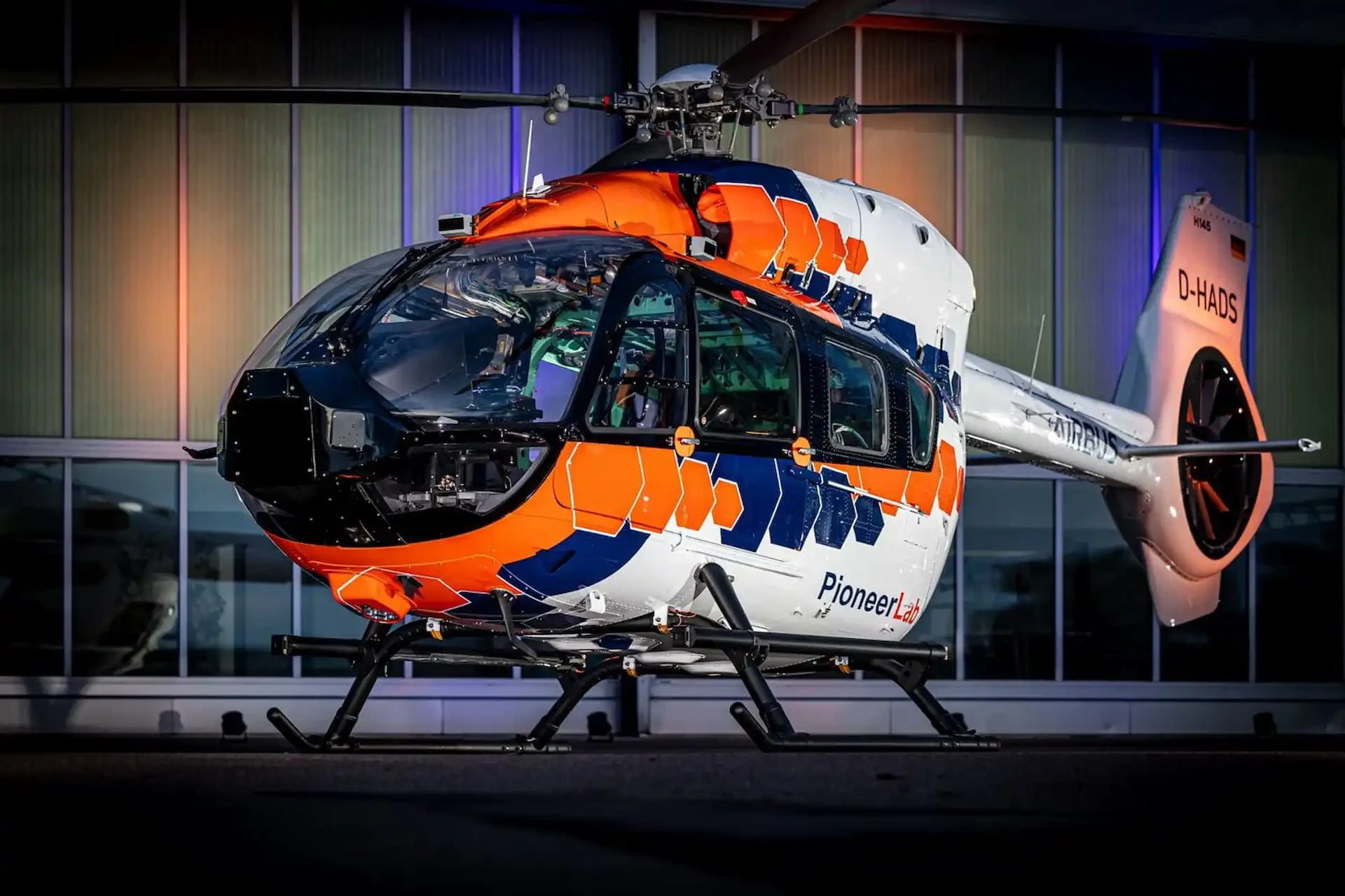Pratt & Whitney Canada and Collins Aerospace have been selected by Airbus Helicopters to support the development of a hybrid-electric propulsion system for its PioneerLab technology demonstrator. Based on a twin-engine H145 helicopter, PioneerLab aims to demonstrate the potential of hybrid-electric propulsion as well as aerodynamic improvements to enable up to 30% improved fuel efficiency and reduced CO2 emissions compared to a conventionally powered aircraft.
For the PioneerLab demo, the helicopter's existing engines will be replaced by a hybrid-electric propulsion system comprised of a Pratt & Whitney Canada PW210 engine derivative linked with two Collins Aerospace 250 kW electric motors and controllers through a common gearbox. This hybrid-electric configuration is designed to enable optimized engine performance and improved efficiency, with the electric motors providing high torque capability during flight conditions such as take-off and landing. Test flights of the hybrid-electric propulsion system are targeted to begin in 2027 at Airbus Helicopters' site in Donauwörth, Germany.
"With world-class efficiency and reliability, Pratt & Whitney Canada's PW210 engine is very well-suited to perform as part of a hybrid-electric helicopter propulsion system," said Maria Della Posta, president, Pratt & Whitney Canada. "To help achieve the goals of this innovative project, we'll draw on expertise from our growing list of hybrid-electric demonstrator programs, including the RTX Hybrid-Electric Flight Demonstrator, STEP-Tech and SWITCH."
"The combined 250 kW motor and controller we're designing for PioneerLab are part of our family of electric motors and controllers that can be scaled up or down to meet the future electrification needs of aircraft across multiple segments," said Henry Brooks, president, Power & Controls for Collins Aerospace. "By serving as part of hybrid-electric propulsion architectures or helping to electrify onboard systems, these motors and controllers will support the aviation industry's commitment to reduce carbon emissions from future platforms."
 HOME
HOME


